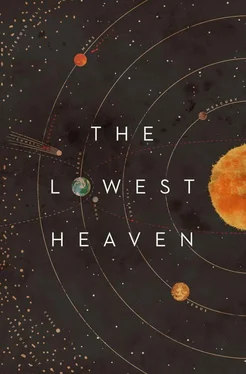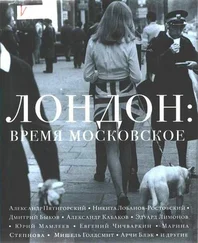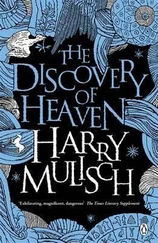It was in the year preceding Ceres that we learned the truth. Saga had recorded a transmission on Mars where she was readying for her latest expedition to the dwarf planet, which at that time was being prepared as a mining centre for the asteroid belt. Ceres would cement China’s wealth and fund the Republic’s empire for a long time to come. We had a hazy awareness of these events, but if we are honest, we did not tend to pay much attention to the expansion. You have to understand that it was a painful thing, to consider the world our mother had chosen over us. Most of the time we preferred not to think of other worlds at all. We were trying to live our lives as unobtrusively as we could, and avoid people discovering the identity of our mother.
Of course, we couldn’t help our dreams.
We were to discover that we have very different lives. Per is a shuttle engineer◦– we assume he inherited most of Saga’s genes. Ulla teaches the old Earth art of yoga and works primarily with pregnant women. Signy is employed by the Earth Restoration Commission and travels to blighted patches of ocean or forestry. We thought it interesting that we had each taken a restorative, vocational pathway. We were feeling for one another’s personalities, on that first night.
Saga had contrived for the transmission to reach us at the same moment across our locations of Moon Colony, Tianjin and the Indian Ocean. It arrived with Per over breakfast: spinach and eggs; he always has them poached. Ulla received it when she returned home from an intensive Bikram class: she had been working on her own practice that day, and her mind was still revolving through salutations. Signy was the last to view it, from the cabin of a ship, which despite Signy’s best efforts smelled of stale sweat and salt, as did her clothes.
The transmission was short. Saga was in uniform, with the rén arrow and crane wings of the CSSA logo visible at her collarbone. There was nothing to suggest where in the solar system she might be, but we were shortly to find out.
Quite calmly, Saga delivered her revelation. It is time for you to find one another , she said. She knew where we were, which surprised us. She also knew what we did, which surprised us more. She invited us to join her next year on the space station orbiting Ceres, from where she would be leading an anniversary expedition down to the surface. (She did not clarify the nature of the anniversary, but later we learned that the first space probe to Ceres had been sent by NASA, several centuries ago in 2015, when NASA was still a guiding force.)
What did we feel, watching Saga’s transmission?
We were bewildered by her. What did she mean by telling us we were multiple? She had thrown our lives into turmoil◦– how could we not hate her a little for it?
Were we angry? Yes, we suppose we were angry too, although we did not admit to anger when we united, not at first.
We were in awe. Saga inspired awe. She inspired admiration. Listening to her low hypnotic voice throwing our lives into turmoil, we could only gaze upon the famous eyes the colour of an ocean on a stormy day (as the biographies describe them), and feel ourselves slowly losing oxygen, or perhaps we were injected with oxygen, high on it, at once starved and sated, propelled into a delirious state that made us not ourselves, or more purely ourselves than ever before. Our heartbeats quickened. We sweated minerals. Our mouths were dry but we wanted to break down and sob. We wanted carpets and cushions to soak up our tears.
Saga wanted us there. She did say this; our memories are united on this point. Saga wanted us to witness the expedition to Ceres. She was excited to have us there, together.
(Later, when we reflected upon the transmission, we realised that she did not say the word together . But she was excited to see us there. Have us or see us? Does it make a difference? We think it does.)
There was no question of not going. We had some concerns◦– the political climate being somewhat unstable, since the revolution on Mars, and rumours of possible war◦– but this was not enough to deter us.
We quit our jobs or took extended leave. We met our new siblings on the Moon. Per was there and it made sense to travel together, even if we would be in suspended sleep. At first we assumed we would want to ride out the long journey, using the time to get to know one another, but Per explained that would not be possible: ships were not equipped to entertain passengers, and hibernation was cheaper and actually far more comfortable. We understood, but we felt a little strange when he used that word, passengers. Perhaps we had been thinking of ourselves as being like Saga, as though we had absorbed something of her spirit after all, but we were not astronauts. We would be civilians, not even emigrants, largely a nuisance, and only undertaking the journey because Saga Wärmedal had ordered it and footed the bill.
It was when we saw the cost of our trip that we realized the extent of Saga’s influence.
In the week before the flight we talked about ourselves and about Saga. We compared our fathers and our bone structures and the colours of our irises. Signy had Saga’s nose. Ulla did not, but she might have done, before she changed it. Per and Ulla had inherited her broad shoulders, we decided, plucking up images. We knew when we finally saw her in person we would be studying every detail, comparing her physique with our own, adjusting the swing of our step a little, to match hers.
We agreed that there were things that must be said to Saga. We would be calm: we would not air our grievances like a committee, but we would ensure that Saga understood what we wanted to tell her. It was difficult to find a common language to describe our loneliness. Signy favoured metaphors. She was poisoned, she said. She was a bird whose migrational compass had been distorted and who no longer knew where to fly, and so flew everywhere, unable to find home. She was a penguin in the Antarctic gone mad, one of those ones that wandered inexplicably out into the ice sheets, where nothing awaited them but starvation.
We considered Signy’s metaphors and felt that the penguin was not quite right. Penguins were too close to comedy, and this was a sad, unfortunate matter. We agreed that Signy should not mention the penguin. The bird, we said, was a better analogy.
Per talked pragmatically about the events of his life. His partner had left him. She said he did not know how to love her, or even what love was. It was she who pointed towards his peculiar childhood. Brought up amongst adults, she said he had never been innocent. It was his mother’s fault, she said. His mother had plucked out his heart and hurled it among the stars, and the stars were cold things, whatever people said. Love to his mother meant a word travelled through a vacuum, uttered by a hologram. How could that be love?
Now there was another woman in Per’s life, a slender girl from Mars, but Per feared it would go the same way.
Ulla explained that she was obsessed with pregnancy, but would never be able to have children. It was not that she was infertile◦– this was a thing in her head. Ulla had seen a therapist, once a week, for the past three years. She told the therapist about our mother, the astronaut, who was without doubt the origin of this affliction. She told the therapist that the idea of bearing her own child was at once abhorrent and the only thing she wanted in life. She did not need a partner; she would happily purchase the requisite DNA. But something was holding her back. She taught yoga for pregnant women, gazing at their swollen bellies. She dandled the babies of friends, and without exception the babies fell in love with her, laughing and squealing with delight, but after handing them back to their parents Ulla would run out of the house or the playgroup or the coffee shop, and breathe in and out of a panic bag, paralysed for hours in the grip of terrible attacks.
Читать дальше












